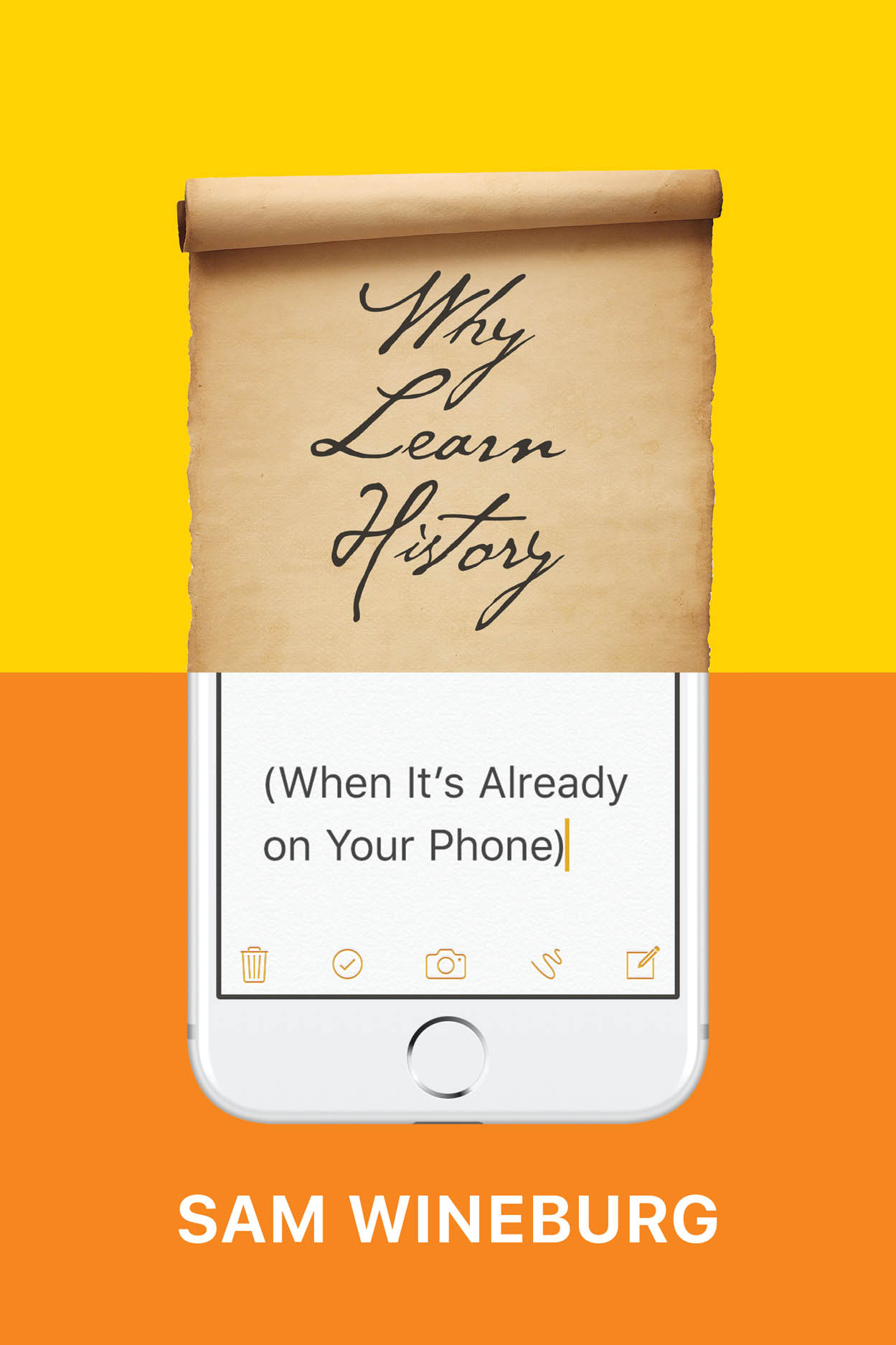It’s interesting that in some ways historians come off as great heroes in your book, and in other places they don’t quite have, as you’re describing, a suspicious enough attitude toward the web. But there are other aspects of historians’ thinking that can really help us out in an information-rich environment like the internet.
Absolutely. I’m literally speaking out of both sides of my mouth. … I think the chapter that’s one of my favorites, the work stuck with me with vividness, is watching a group of scientists trying to read Washington’s Thanksgiving Proclamation and inferring that Washington was, like, this super-religious pious guy, because of essentially a bunch of deist language that they were interpreting through the lenses of their contemporary understanding of vocabulary. And it was the historians who understood that these were code words that, if they didn’t mark someone as a deist, they certainly marked someone as going to great pains to avoid explicit mention of Jesus Christ, the savior, the trinity.
There’s a kind of suspicion that historians take in interpreting someone else’s language using linguistic codes of the present. Which I think is a humility that is applicable not just in thinking about the past, but also in talking to people across the divides that separate us in contemporary society.
I loved the note you made about the difference between “sounding critical” and thinking critically. President Trump recently said that Google is biased against conservatives. There have been a number of instances of this, where Trump or someone Trump-ish will say something that sounds critical or wise but isn’t. It’s hard because it almost feels like there is an appropriation of the language of critical thinking on the right that makes it hard to explain what the difference might be between that and what we are talking about.
It’s not “almost an appropriation,” it is an appropriation. And in this respect, the work that has influenced me the most is the work by Kate Starbird, an absolutely brilliant internet researcher who studies crisis communication at the University of Washington’s College of Engineering.* And she has a paper that shows that the alt-right has, right there with Alex Jones, has appropriated the language of “Do you have an open mind? Are you an independent thinker? Are you willing to trust your own intelligence to make up your own mind when you review the evidence?”
And so absolutely, this is the language that has been appropriated by the alt-right in particular, these neo-Nazi sites and conspiracy sites that basically say, “The wool is being pulled over your eyes! But you have the power to [pose] thoughtful questions through your own powers of discernment if you have an open mind.” This is the stock-in-trade of propagandists—you can go back and see the same kind of thing in work by Lenin and Goebbels: “You should trust yourself. We’re not going to tell you what to believe, you evaluate the evidence—here is the evidence.”
